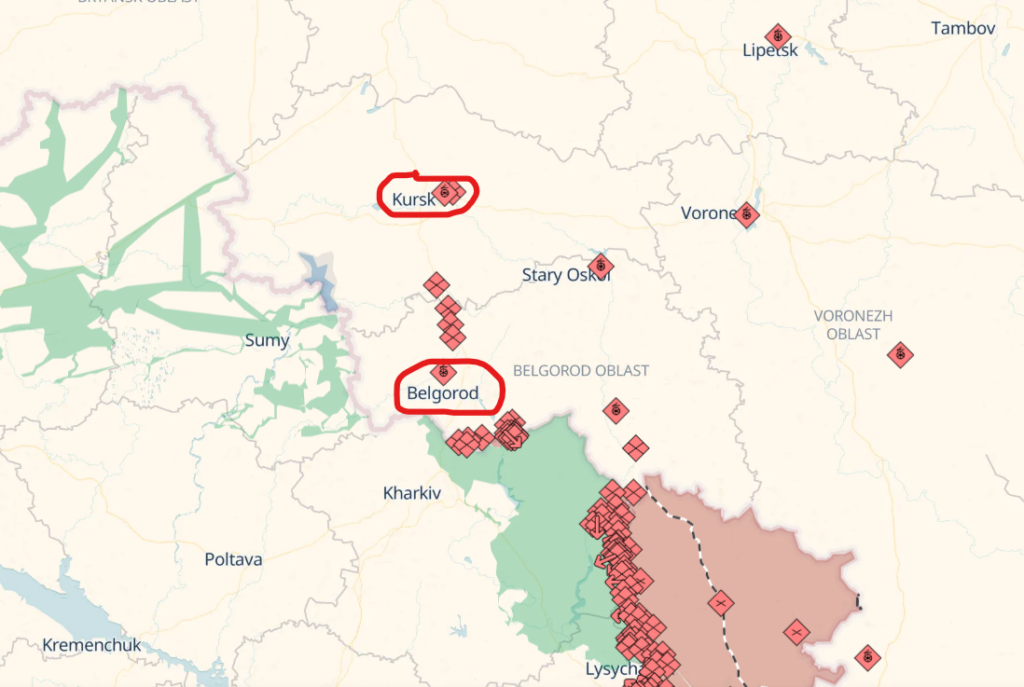Belgorod governor reports casualties, orders relocation of civilians near Ukrainian border
Authorities in Russia's Belgorod Oblast closed entry to 35 settlements and implemented remote schooling in response to what they describe as a tense border situation with Ukraine.


The operational headquarters of Russia’s Belgorod Oblast relocated residents from several villages, according to Governor Vyacheslav Gladkov.
The Russian state news agency RIA Novosti reported, citing the governor, that there are “many injured and dead” in the border area.
According to Gladkov, residents from the villages of Poroz and Dronovka in the Grayvoronsky district and the village of Stary Khutor and Pavlovka hamlet in the Valuysky urban district will be relocated.
He added that entry to the village of Vyazovoye in Krasnoyaruzhsky district has been closed, with checkpoints established to control access.
Gladkov also said that schools within a 20-kilometer zone in the oblast’s border municipalities will operate remotely. About 35 settlements in the oblast have been closed to entry due to the “operational situation.”
The day before, Gladkov claimed that the “situation on the border with Ukraine remains difficult but controlled” and that Russian military forces were conducting “planned work.”
This development comes after Ukrainian Armed Forces reportedly crossed the Russian-Ukrainian border near the city of Sudzha in Kursk Oblast on 6 August 2024.
On 10 August, Ukrainian forces reportedly took control of the village of Poroz in Belgorod Oblast. A counter-terrorism operation regime was introduced in Russia’s Bryansk, Kursk, and Belgorod oblasts, involving increased security measures, movement restrictions, document checks, and phone monitoring.
On 12 August, Ukrainian authorities confirmed for the first time the involvement of their armed forces in a special operation in Kursk Oblast.
Read also:
- Ukrainian defenders destroy Russian “Sapphire” electronic warfare system in Kursk Oblast
- Zelenskyy: Ukrainian troops extend control in Russia’s Kursk Oblast
- State of emergency declared in Russia’s Belgorod Oblast
You could close this page. Or you could join our community and help us produce more materials like this.
We keep our reporting open and accessible to everyone because we believe in the power of free information. This is why our small, cost-effective team depends on the support of readers like you to bring deliver timely news, quality analysis, and on-the-ground reports about Russia's war against Ukraine and Ukraine's struggle to build a democratic society.
A little bit goes a long way: for as little as the cost of one cup of coffee a month, you can help build bridges between Ukraine and the rest of the world, plus become a co-creator and vote for topics we should cover next. Become a patron or see other ways to support.


